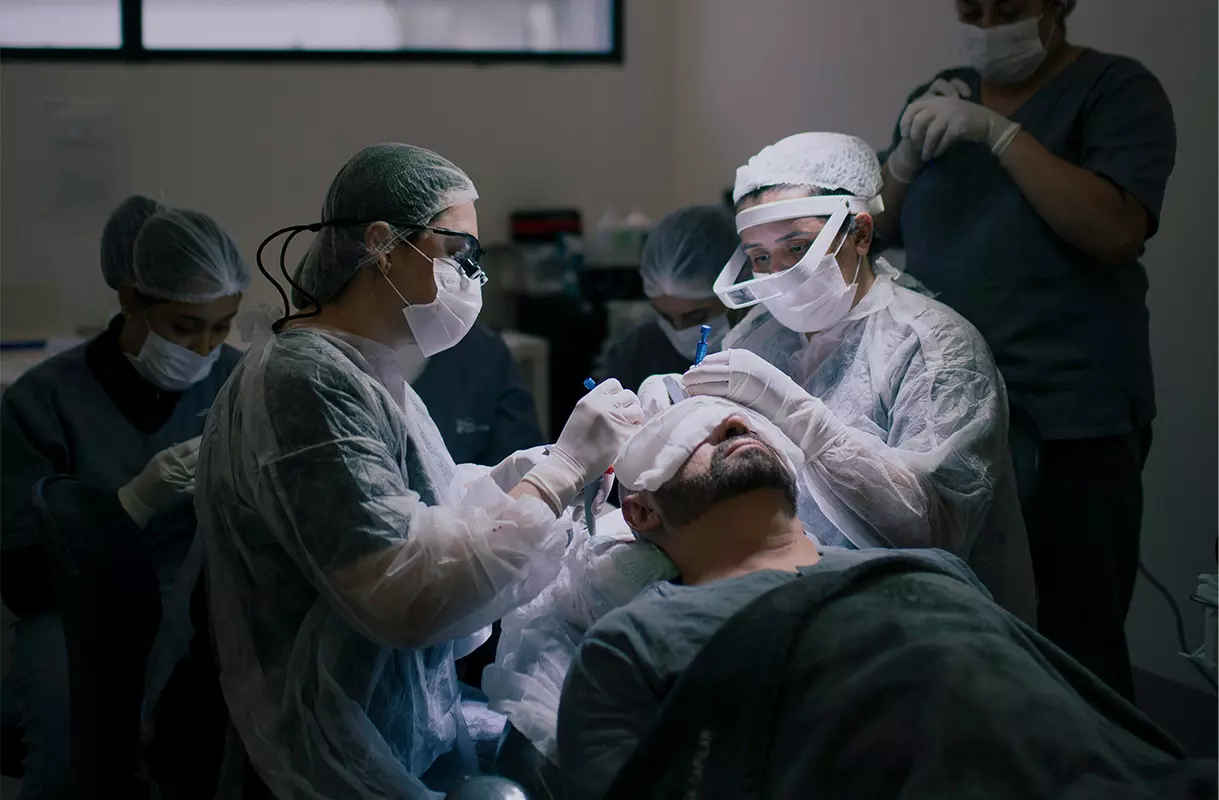September brings us Alopecia Areata Awareness Month. In the large family of alopecia and its causes, the focus this month is on Alopecia Areata. This is an autoimmune disease affects as many as 6.8 million people in America and causes hair loss that can range from patches of hair, typically circular and coin-size, to complete hair loss, otherwise known as alopecia totalis.
What Causes Alopecia Areata?
This is an autoimmune disease, and while there is no known cause, several factors seem to contribute. Some evidence shows genes that control T regulator cells may be involved in alopecia areata because promoting the function of T regulator cells has made it possible for patients with AA to regrow hair.
Other links pointing towards the autoimmune system include evidence that AA patients who have other autoimmune diseases like autoimmune polyglandular syndrome (APS) or autoimmune thyroid disease (AITD) may be predictive of poor outcomes with alopecia areata treatment. Although there is no known cure, it is generally possible for AA patients to regrow hair because the hair follicle is not totally destroyed or scarred as it is with cicatricial (scarring) alopecias.
Bringing Awareness to Alopecia Areata
Bringing awareness to this disease is designed to help those experiencing hair loss remain confident and positive, despite their condition. Hair loss often carries a stigma that can only be dispelled with education and knowledge, and for many with this disease, the emotional aspect of living with hair loss can be the greatest challenge. Which is why bringing attention to alopecia areata on a national level can hopefully benefit those are who silently suffering and believed there were no options for them.
Joining a support group to connect with people who understand what someone with this disease is going through is often helpful. Not only do you garner wisdom and knowledge regarding solutions and suggestions but, in many instances, you will also develop lifelong friends. For those who are not comfortable in a group setting, one-on-one counseling may help them face this disease with confidence. Knowing that there are treatments available, including medications and therapies that promote hair growth, can help those with this disease remain hopeful.
This year's theme, developed by the National Alopecia Areata Foundation (NAAF), is "SeeUS”. Many communities across America are holding special events to bring awareness to this disease, and minor and major league baseball teams have joined in helping NAAF get the word out that it is nothing to be ashamed of. For more information on the SeeUS campaign visit naaf.org.
Future Outlook of Alopecia Areata
The National Institutes of Health and other organizations are continuously supporting research that may one day put an end to this disease. Currently, researchers are studying the development of hair follicles in hopes of finding treatments that will address the cause of this disease. Others are researching genetic clues with the hopes of developing therapies and early intervention strategies.
The Good News Now
Alopecia Areata is not a life-threatening illness nor does it cause any pain. It is not contagious and most people with this disease are generally healthy. It does not interfere with life or long-term plans and, while the course of the disease varies and is generally unpredictable, hair often regrows. There are treatments that can help restart hair regrowth, and hair replacement can ease the emotional struggles for those who have less than optimal regrowth.
Hair Restoration
At Hair Transplant and Restoration Center, Dr. Gray's approach to treating hair loss is clinical, surgical, medical and diagnostic. Determining the appropriate treatment for each patient is based on the diagnosis, which we make through medical procedures that may include lab tests, a microscopic hair exam, or a biopsy. If you notice patches of hair loss, hair coming out in clumps, or an increase of hair coming out when you brush it, contact us for a consultation in order to discuss your many options.






